From 1851, when the government of of the new colony of Victoria (Victoria became a separate colony from New South Wales on 1 July 1851) set aside 200 acres of land on the outskirts of Geelong for the purposes of establishing a botanic gardens, the Geelong Botanic Gardens have been developed to be both a place of relaxation and enjoyment for the citizens and a repository of valuable and endangered plants.
The Botanic Gardens cover about 6 hectares (~15 acres). The rest is known as Eastern Park and is a passive and active recreational area. Both the Geelong botanic Gardens and Eastern Park have heritage value, and are listed on the Victorian Heritage Register. About 36 trees in both the gardens and the park are listed on the National Trust Register of Significant Trees.
The Geelong botanic Gardens and Eastern Park are real assets and benefits for the people of Geelong.

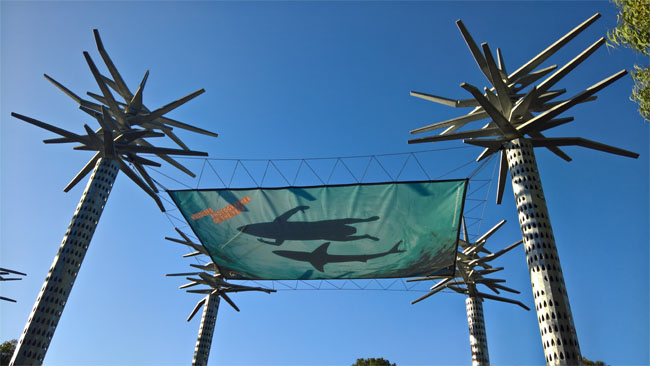
Copyright © Willem Schultink
Surfer’s tension. Part of the Photographer of the Year display at the entrance to the Geelong Botanic Gardens. I’m sure the surfer would have been pretty tense with that shark alongside him! Note the interesting tree sculptures.
Victoria State Map – This is Australia! A great and useful travellers’ map of Victoria
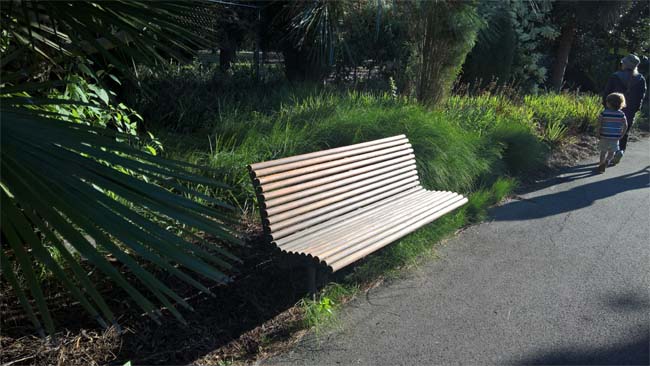
Seats are plentiful throughout the gardens. This is a much appreciated feature! The sunlight lit up this seat for just an few seconds to give a great focus and a strong image.
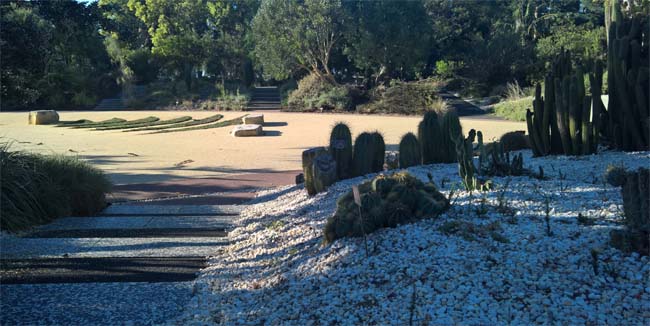
Copyright © Willem Schultink
Many varieties of cactus, as well as other arid lands plants, in this section just inside the entrance to the gardens.
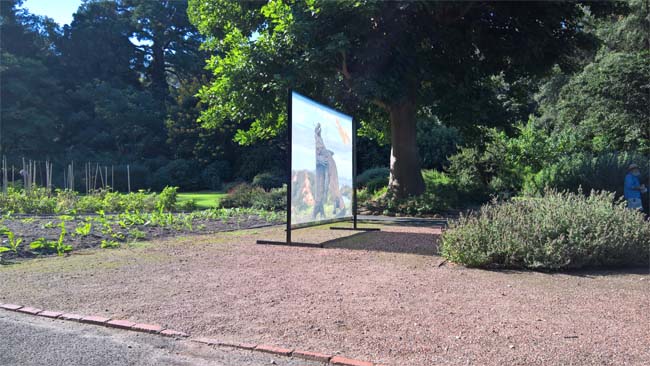
Copyright © Willem Schultink
There were a number of entrants in the Photographer of the year displayed in the gardens. Sunshine lit up this one so the back of the image was quite striking. The Californian Giant Redwood tree is in the background.
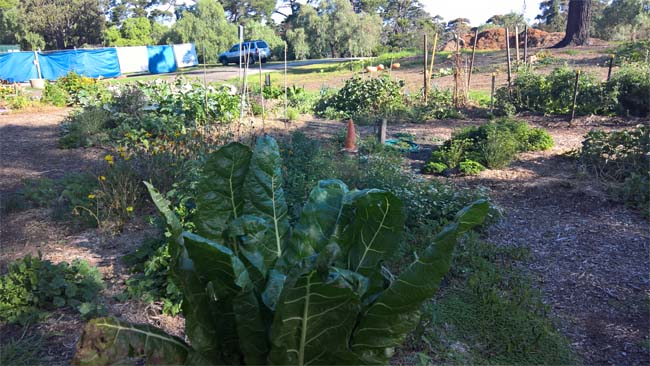
Copyright © Willem Schultink
The vegetable gardens are part of the Botanic Garden’s education program. That’s a seriously big silverbeet in the foreground!
Victoria State Map – This is Australia! A great and useful travellers’ map of Victoria
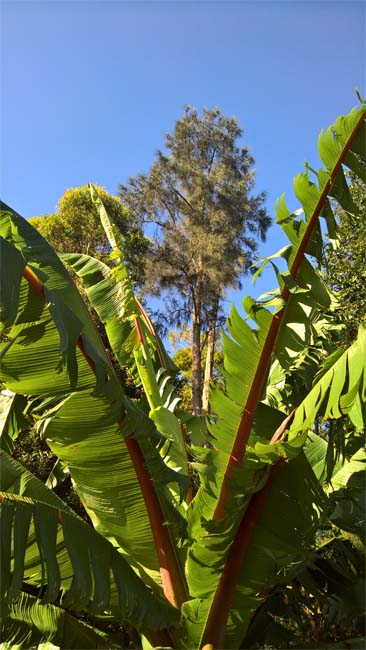
Copyright © Willem Schultink
There are a number of seats in the vegetable garden area, slabs of tree trunks and flat rocks. These are great and well appreciated – but watch out for ants! A great place to sit. Turn around and the trees in the main gardens are framed in palm leaves.
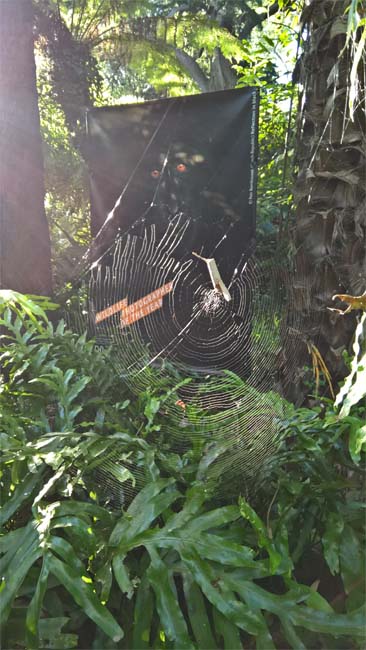
Copyright © Willem Schultink
The sunlight catches the web of the curly leaf spider. The spider uses a leaf which it curls – sometimes a piece of paper or other object is used – as a hiding place from predators as well as to avoid being seen by potential prey. They are common in north, eastern and south eastern Australia. Another entrant in the Photographer of the Year is in the background.
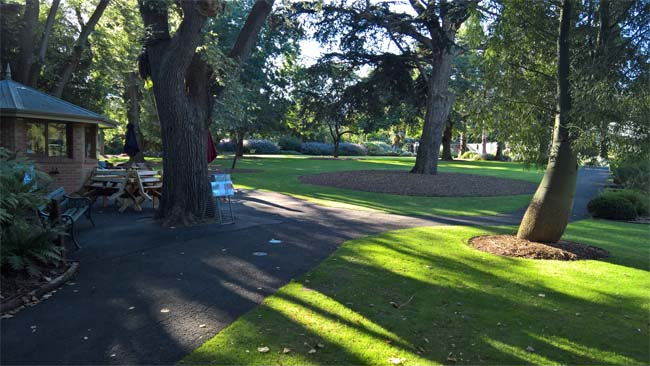
Copyright © Willem Schultink
The afternoon sun through the trees makes the verdant Botanic Gardens warm and inviting. The Teahouse, which is closed on this late Sunday afternoon, is to the left of the picture.
The Teahouse was originally opened in 1992, and was operated by the Friends of the Geelong Botanic Gardens until January 2012. The difficulties of finding enough volunteers caused them to return the management of the Teahouse to the city council. It is now operated by a private business.
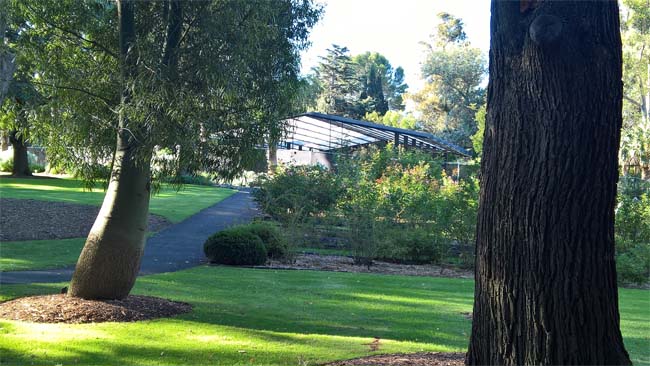
Copyright © Willem Schultink
The Walter Conservatory building, which currently being rebuilt, houses many plants in a temperature and humidity-controlled environment, which would otherwise not survive the colder Geelong weather.
Hema HX-2+ Navigator – This is Australia! Brilliant both on road and off road!
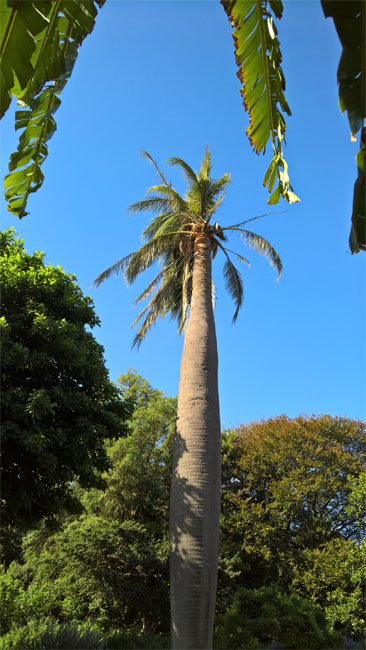
Copyright © Willem Schultink
The Chilean Wine Palm was planted in 1869, so it’s been around for a while. It is a native of central Chile, near the capital of Santiago and the port city of Valparaiso. It is a slow growing tree that gets up to about 25 metres tall. When felled it is a source of edible sweet palm honey, which can be made into alcoholic beverages.
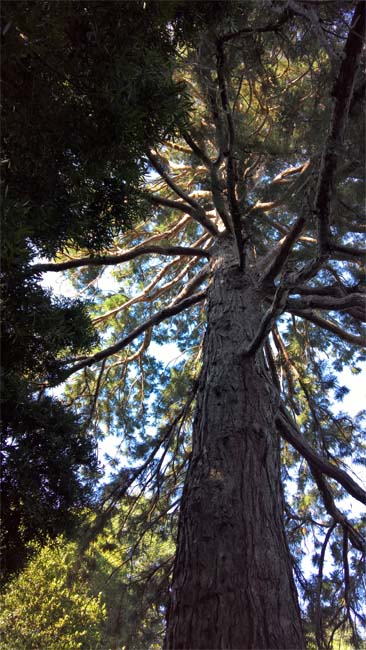
Copyright © Willem Schultink
The Big Tree of the botanic Gardens, the Giant Redwood (Sequoia) was planted in 1873, which makes it quite a young tree. Giant Redwoods are know to live up to 3500 years old in their native environment of the Sierra Nevada mountains in California.
Hema HX-2+ Navigator – This is Australia! Brilliant both on road and off road!
This page Copyright © ThisisAustralia.au


All the labels you use every day, with excellent service! EveryLabels.com.au

